SEO
The Coming of Artificial Intelligence Chatbots in Search Engines
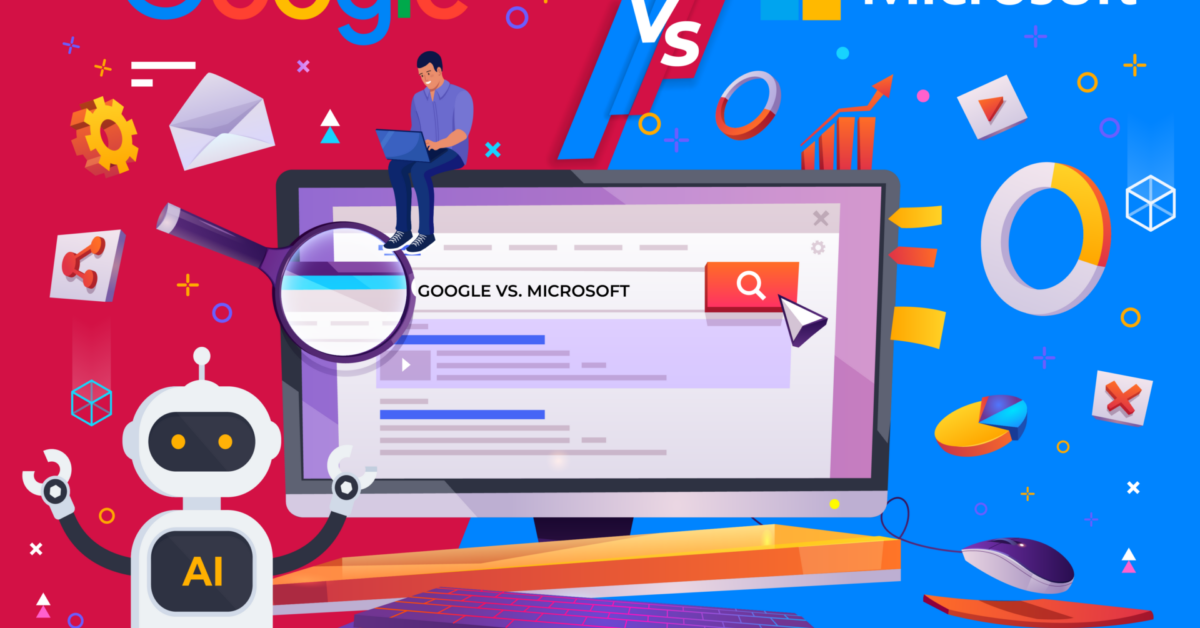
Search engines, as we know them, are about to move into a whole new era with artificial intelligence chatbots.
We saw it first with ChatGPT and its record-breaking adoption and how it opened up a wealth of new opportunities in the field of generative AI. We saw it again with Microsoft’s move toward an AI-powered search setup.
And now, with the upcoming launch of Bard, Google’s entry into the artificial intelligence chatbot race, the conflict between AI chatbots have already begun.
We can see it now, in real-time: companies are rapidly expediting their research and development on how they can augment AI in hopes of further improving their current search engines and platforms.
In this article, I will be discussing where we are currently in the ‘AI war’. I will also be comparing the recently launched ‘Microsoft AI-powered Bing’ to Google’s AI-integrated offering – ‘Bard’.
Artificial intelligence (AI) chatbots are a fascinating tool, trained to have human-like conversations using a process called natural language processing (NLP).
This allows the chatbot to both interpret and respond with human language naturally—which enables them to understand language and provide responses based on existing data. And, they can be trained to do just about anything.
There are, in fact, various AI chatbots that exist today that you are probably using daily, the best examples being Apple ecosystem’s Siri and Amazon’s Alexa.
AI chatbots are the greatest proof of the evolution of artificial intelligence and machine learning throughout the years.
And its use cases keep on growing—and we’ve all recently seen one gain massive popularity: which is to answer specific questions. And, a great example of this is ChatGPT, an AI chatbot developed by OpenAI.From its launch in November 2022 up to writing this article in February 2023, it was reported that it reached the 100 million active users milestone. Its rise in popularity has pushed companies like Microsoft and Google in developing their own AI-powered chatbots.
Now back in January 2023, Microsoft announced their collaboration with OpenAI that will allow their own search engine ‘Bing’ to have capabilities and features like what ChatGPT offers to their users, and they will be launching it by March 2023.
And a few weeks later, Google directly responded by announcing that they, too, were currently developing their own “experimental conversational AI feature” called ‘Bard.’ This one was initially released in February 2023 to testers, with no set date for a public release.
Microsoft vs. Google: Who has the better AI Chatbot?
Since AI chatbots seek to give answers or solutions to their users, it makes sense that both Google and Microsoft (Bing) are making moves to bring features of it to further improve their current search engines.
But what about ChatGPT? Well, it wouldn’t make sense to compare this to the other two. One, because it finished training in 2022 (which means its information is not up to date). Two, because ChatGPT is unable to crawl the web.
Now here are some of the important information in Google’s and Microsoft’s AI Chatbots so far:
Microsoft Bing:
Microsoft started investing with OpenAI way back in 2019, and since then Microsoft has moved fast in bringing in the artificial intelligence chatbot in Bing.
Just last month, Microsoft opened the new AI-integrated Bing search in a limited preview for users to test, and the feedback from it was overwhelmingly positive—71% of the users gave it a thumbs-up.
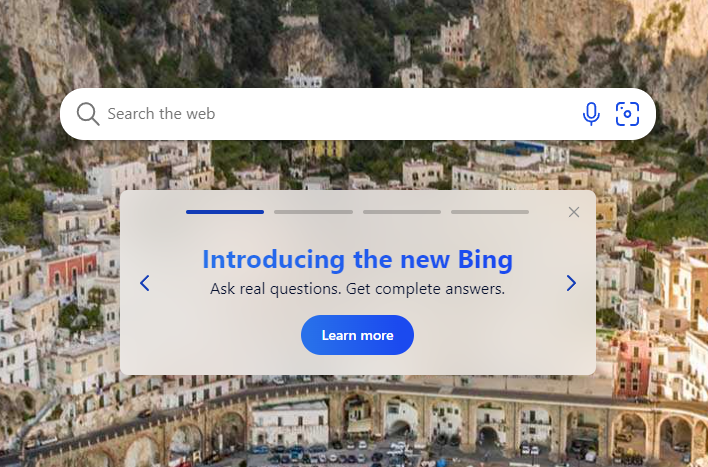
However, despite the good words and praises, there were some issues that came up during the testing, especially for long chat sessions ranging from 15 questions and up. Some users said that Bing became repetitive and gave unhelpful responses to their prompts.
Microsoft later addressed this problem with these changes:
- The AI Chatbot will now be limited to 50 chat turns per day for every user, with just 5 chat turns per session.
- When a user reaches the 5 chat turns in a session they will be prompted to start a new topic, and the context of the conversation with the chatbot will be cleared. This is to avoid the AI chatbot being confused.
- They also added a ‘broom’ icon to the left side of the search bar to manually clear the previous conversation to start a new topic.
Microsoft also introduced its new AI-powered search engine to its Bing search engine and Edge browser for mobile devices. They also added these new features to Skype.
So, we can also expect that these AI-powered capabilities will be added to the rest of Microsoft’s communication applications—like Teams—in the future.
Google Bard:
While Microsoft was agile in launching its improved AI-backed search engine, Google in comparison seems to be taking their time in developing their own AI chatbot. It was only back in January 2023 that they even announced that they would be adding a conversational AI feature to their search engine.
This announcement was made by Google founders Larry Page and Sergey Brin. These founders were brought back to Google by its CEO Sundar Pichai, after the success of OpenAI’s ChatGPT, which posed direct competition in the world of search engines.
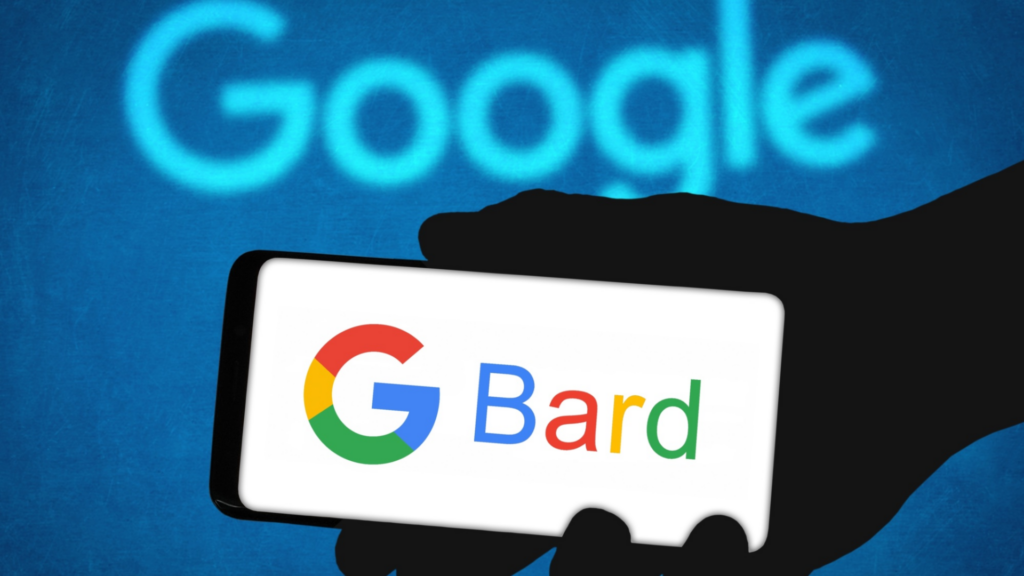
Since their initial announcements, we still have limited knowledge about Google Bard. None of this AI chatbot’s abilities have been revealed nor confirmed, and how it will work is a mystery. But, it does look like it will function similarly to OpenAI’s ChatGPT.
Here are some of the relevant (and Google-confirmed) information you might want to know:
- Bard’s conversation capabilities will be powered by a language model created by Google called ‘LaMDA’ (Language Model for Dialogue Applications)
- LaMDA was trained on a dataset called ‘Infinset’
- ‘Infiniset’ is a mix of internet content that was intentionally chosen to improve the model’s ability to engage in conversation or dialogue.
- According to LaMDA’s research paper, it is pre-trained with 1.56 trillion words of “public dialog data and web text.”
With regard to AI, Google is also planning to launch 20 new AI products this year – alongside Google Bard. This demonstrates Google’s commitment to improving its ‘search engine’ more effectively and intuitively for its users.
So Who Wins?
For probably the first time ever, Bing seems to be taking the lead against Google. By launching first, and integrating conversational style answers into their system, they’ve managed to get ahead. In fact, Bing has already opened up a waitlist and is gradually rolling it out—garnering more traffic than ever.
At the same time, Bing’s AI chatbot seems to provide more accurate answers, compared to Google’s (who gave an inaccurate answer in their promotional tweet ).
But while Bing is ahead at this early stage in the race, Google has never taken its competition lightly. They will likely figure out a way to become a significant player in the AI arena in the coming months.
What does Google Bard (and other Artificial Intelligence Chatbots) Mean for the Future of SEO?
Speaking from a Google-centric standpoint, having an AI chatbot implemented could significantly impact our SEO practices.
From the little we’ve already seen, it looks like Bard will replace the spot of the featured snippet. Much like ChatGPT, it could consolidate information from many sources, and provide a personalized answer to the user’s query. It could also provide additional insights, such as articles from the SERP, videos, and more.
For example, someone looking for a step-by-step guide on how to tie-dye a shirt would receive a guide from Bard, rather than a set of articles that may or may not have the design or style that they were looking for.
This could end up changing standard SEO practices, particularly those geared towards gaining a featured snippet. This, in turn, could shift the focus on providing more high-quality, relevant, and informative content for people looking to gain additional perspective or fact-check the answer that Bard provides.
Will Artificial Intelligence Chatbots Replace Organic Search Results?
The picture I painted in the previous sections might look bleak—but it is unlikely that Bard would completely replace all organic search results, once it is fully launched.
After all, as powerful as they can be, AI-powered tools always have limitations and may not always provide the most accurate or comprehensive answer.
Furthermore, Google already understands that not all queries are looking for one, specific answer. Sometimes, people are looking for a variety of sources to come to their own conclusions. Take, for example, if you’re looking for different types of swimsuits for your next vacation. That variety of information and content is something that they can’t get rid of.
What I think is that these new generative AI features being added onto search engines will help users gain access to answers much quicker, as they help organize complex information and multiple viewpoints right in the featured snippet.
So, will Bard, Bing, and other AI chatbots make us SEO professionals obsolete? I don’t think so. They’ll undoubtedly play an important role in delivering information to users, but SEO will not become obsolete.
Key Takeaway
With the rise of Bard, Bing, ChatGPT and other artificial intelligence chatbots pushed a shift in the industry of search engines and its development, and even two of the biggest pillars in the industry— Microsoft and Google—have pivoted their focus on it.
Let this be an important reminder for us SEO practitioners that we should be able to adapt and keep up with the rapid advancement of technology to maintain our competitive edge in the industry.
Lastly, I want to emphasize that SEO and AI are not mutually exclusive. AI will continue to change the landscape of search, but it can also be used to enhance the quality and delivery of information.

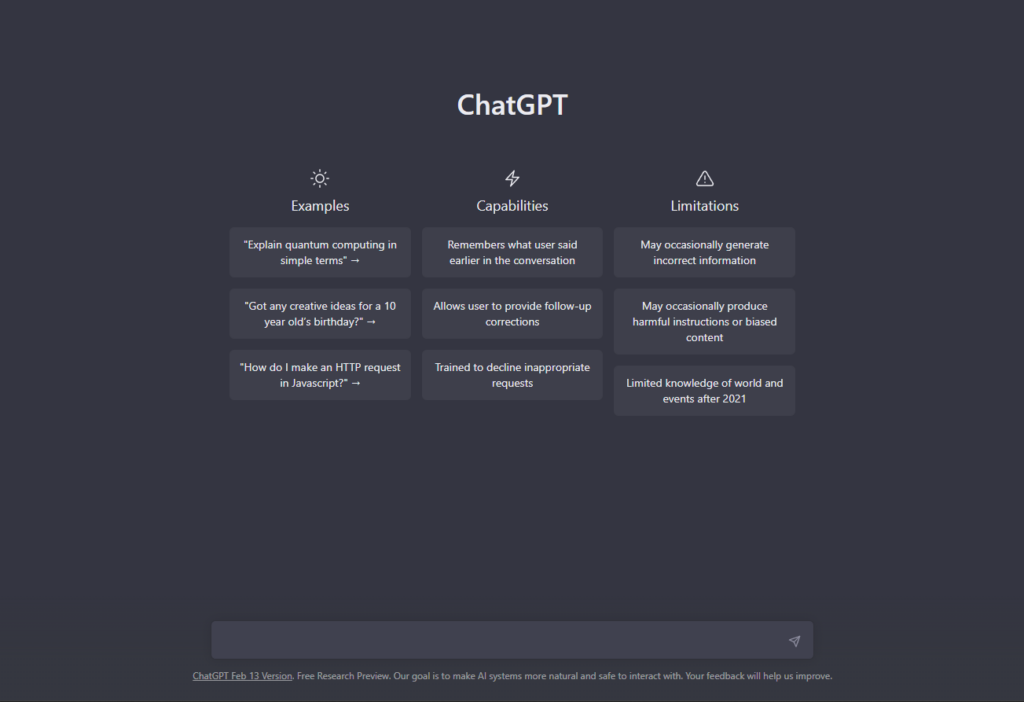
![How AEO Will Impact Your Business's Google Visibility in 2026 Why Your Small Business’s Google Visibility in 2026 Depends on AEO [Webinar]](https://articles.entireweb.com/wp-content/uploads/2026/01/How-AEO-Will-Impact-Your-Businesss-Google-Visibility-in-2026-400x240.png)
![How AEO Will Impact Your Business's Google Visibility in 2026 Why Your Small Business’s Google Visibility in 2026 Depends on AEO [Webinar]](https://articles.entireweb.com/wp-content/uploads/2026/01/How-AEO-Will-Impact-Your-Businesss-Google-Visibility-in-2026-80x80.png)






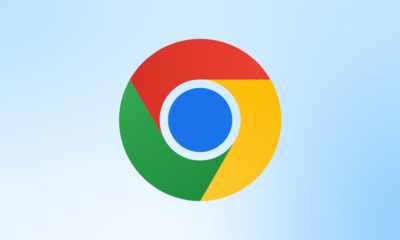








You must be logged in to post a comment Login